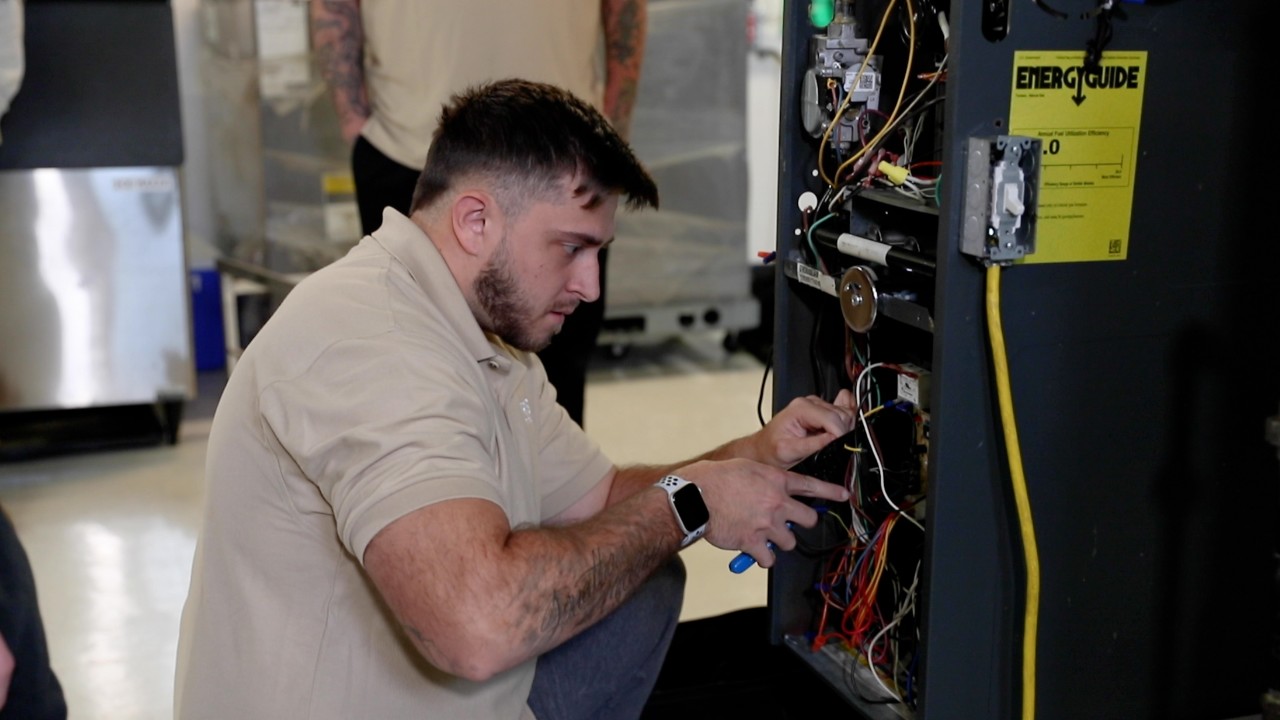The field of HVAC (Heating, Ventilation, Air Conditioning) is one of those industries that has experienced rapid change over the last few years with HVAC innovation. The pandemic showed us the importance of good ventilation, and government regulations around climate policy are accelerating the need for energy-efficient heating and cooling systems.
This year, 2023, is a big year for HVAC efficiency. It’s the year that new regulations from the Department of Energy will take effect for HVAC systems, raising efficiency requirements for air conditioning and heat pump systems. Also in 2023, a new, environmentally friendly refrigerant is going into new systems.
In short, the industry continues to be robust for HVAC technicians. Commercial buildings will need to comply with new regulations. And new technologies are motiving homeowners to install new systems, with 60% of homeowners intending to install high-efficiency systems to reduce energy consumption and costs, according to a 2022 American Home Comfort Study.
One of the biggest trends that makes eco-friendly HVAC possible is smart technology. It allows for controlling a building’s temperature, humidity, and airflow remotely with the touch of a tablet or smartphone. Homeowners, landlords, and property managers want to be able to use software-enabled HVAC systems to save on energy bills and heat or cool specific areas of a building or home.
Connectivity—aka the Internet of Things (IoT)—enables HVAC systems, sensors, and software to work together toward environmental efficiency. Automation technologies are in huge demand so systems can be managed remotely.
What does that add up to? HVAC technicians need to stay up to speed on emerging smart technologies to be able to install or service them, and that means effective training is important. Each state has different HVAC licensing requirements, but even after you’re licensed, ongoing training is essential to understand the changing landscape of HVAC technology. Older systems aren’t going away, but as IoT technology grows, the new systems will require skilled HVAC technicians who know how to work on them.
Fortis’s Heating, Ventilation, Air Conditioning and Refrigeration (HVAC-R) training program prepares students for entry-level employment as an HVAC technician, HVAC installer or HVAC mechanic. The training includes hands-on work in the computerized diagnostics that are present in virtually every modern system.
If you have an interest in computer diagnostics, HVAC could be a field for you. Click here for more information or call 1-855-436-7847 to speak with an admissions advisor today.


